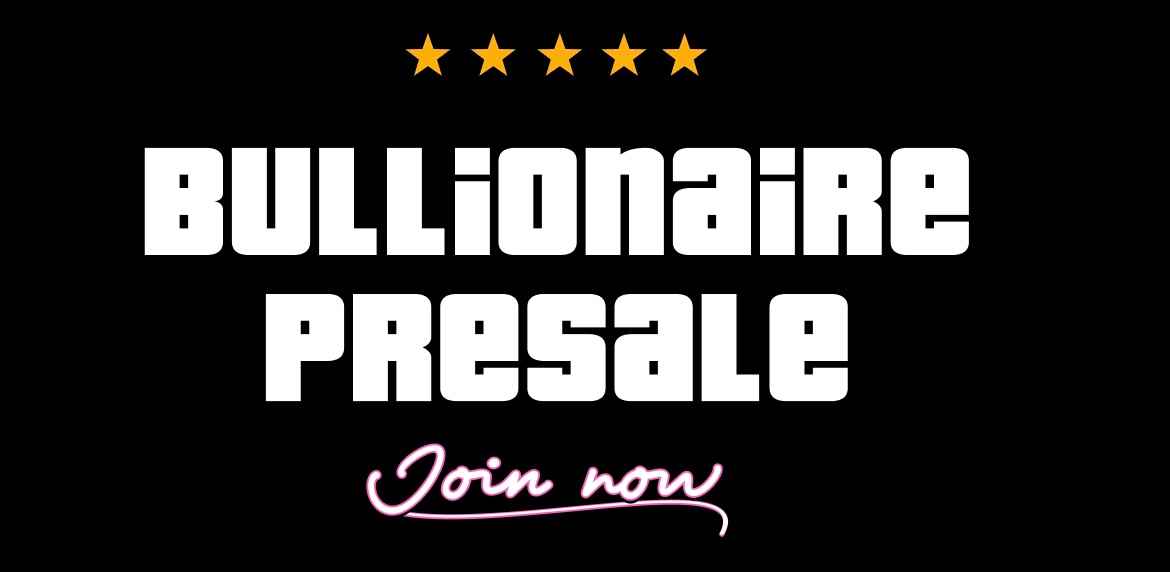
Threat intelligence enriched with External Attack Surface Management, Brand Protection, and Dark Web Radar.
Protect your business from the dangers lurking in the hidden corners of the internet.
Effective threat hunting and threat actor tracking with behavioral analytics.
Discover your assets with a hacker mindset.
Stay ahead of threat actors with actionable intelligence alerts.
Evaluate the security posture of your entire supply network.
Your guide in harnessing the full potential of our platform.
Hear SOCRadar’s impressive achievements from our clients.
Automate and operationalize your security operations.
Consulting and professional services for cybersecurity excellence.
Industry, sector, and region-based in-depth research.
Discover the heartbeat of cyberspace through a collection showcasing the latest incidents.
Discover how XTI empowers organizations to proactively identify, mitigate, and respond to evolving cyber threats.
Register for our live webinars, and watch our on-demand webinars instantly.
Dive deep into the world of cyber threats, advanced analysis techniques, and cutting-edge strategies.
Stay informed and up-to-date on the latest cybersecurity trends.
Explore SOCRadar’s learning experience to fuel your cybersecurity journey with insights that exceed industry standards.
We offer expert-led, and exclusive trainings to help you master the latest in cybersecurity, trusted by over 2,000 top companies.
Scan the dark web to prevent your leaks from turning into real risks.
Instantly access dark web findings about your organization’s assets.
Check if there is anything about you in SOCRadar’s ever-expanding breach database.
Track threat actors and groups by country or industry for effective follow-up.
Explore threat actors’ tactics, techniques, activities, and detailed profiles targeting your industry or region.
All-in-one next-generation tools for investigating everyday events like phishing, malware, account breach, etc.
Power your search with SOCRadar’s IOC Radar.
Let’s get to know each other better.
Broaden your market reach and increase ARR with SOCRadar Extended Threat Intelligence.
Get informed of our upcoming events.
Latest news about our platform, company, and what’s being said about us.
Begin an extraordinary journey in your professional path with SOCRadar.
We’d like to hear from you.
SOCRadar Training Series – Mastering AI in Cybersecurity From Theory to Practice
Resources
[Update] October 21, 2024: “New Breach Hits Internet Archive, API Keys and Source Code Exposed”
The Internet Archive has come under spotlight in social platforms and the cybersecurity community as news of a data breach, exposing the personal information of 31 million users, spread across the web. To make matters worse, the service has faced continuous Distributed Denial of Service (DDoS) attacks in the last two days, rendering many of its functions and the widely-used Wayback Machine inaccessible.

Notice: Wayback Machine is temporarily offline
The Internet Archive, established in 1996 as a non-profit organization, has long served as a digital library for researchers, historians, and general users. Its mission has been to provide access to a vast array of online resources for posterity. However, the recent breach and subsequent attacks have raised questions about its security and future.
In this article, we’ll explore what led to this significant breach, how the DDoS attacks unfolded, and what users need to know in the wake of these incidents.

The Internet Archive’s popular service, The Wayback Machine, has fallen victim to a significant data breach. A threat actor compromised the site, gaining unauthorized access to a user authentication database containing 31 million unique records.
After the site recovered from an initial wave of DDoS attacks on October 8, visitors began seeing a JavaScript alert left by the hacker. The message read: “Have you ever felt like the Internet Archive runs on sticks and is constantly on the verge of suffering a catastrophic security breach? It just happened. See 31 million of you on HIBP!”

Alert shown on archive.org after breach
The threat actors behind the Internet Archive breach remain unidentified, but the stolen authentication database was shared with security researcher Troy Hunt nine days ago, according to BleepingComputer.
After verifying the data by contacting affected users, Hunt initiated a disclosure process with the Internet Archive, stating the breached data would be available on Have I Been Pwned (HIBP) within 72 hours.
According to HIBP’s breach summary, the stolen database includes 31 million unique email addresses, bcrypt-hashed passwords, screen names, and other data.

Breach information on Have I Been Pwned (HIBP)
The database, a 6.4GB SQL file named “ia_users.sql,” contains records with the most recent timestamp from September 28, 2024, likely marking when the breach occurred. However, it remains unclear how the threat actors breached the Internet Archive and whether any other sensitive data was compromised.
In light of such security breaches, leveraging tools like SOCRadar’s Breach Dataset module can be a critical part of the response. By continuously monitoring compromised datasets across the dark web, you can quickly identify if any credentials, such as those exposed in the Internet Archive incident, have been leaked. Additionally, using Dark Web Monitoring services helps track threat actor activity surrounding data breaches, enabling a more comprehensive defense against cyberattacks.

SOCRadar’s Breach Datasets module page
These modules, coupled with SOCRadar’s Alarm systems, equip your organization with the intelligence needed to protect sensitive information, ensuring that unauthorized access is detected early and handled before it leads to greater compromise.
The Internet Archive came under a Distributed Denial-of-Service (DDoS) attack on October 8, which has been claimed by the hacking group BlackMeta a day later. While it is suggested that the DDoS attack is unrelated to the recent security breach, the group has announced plans for additional attacks.
BlackMeta took to social platform X, claiming their success, stating, “We have been launching several highly successful attacks for five long hours and, to this moment, all their systems are completely down.”

Tweet by BlackMeta threat group (X)
BlackMeta, also known as SN_BlackMeta or DarkMeta, is a pro-Palestinian hacktivist group that emerged in November 2023. The group has previously claimed responsibility for cyberattacks targeting organizations in Israel, the United Arab Emirates, and the United States.
In an additional statement on X, BlackMeta cited political motivations for their DDoS attacks on the Internet Archive, protesting that it belongs to the United States. They accused the U.S. government of supporting actions by Israel, framing their attack as a protest in the ongoing Palestine-Israel conflict.
Despite their claims, it’s important to note that the Internet Archive is a non-profit organization, independent of the U.S. government.
The Internet Archive breach has caught the attention of various hacker groups, sparking conversation on platforms like Telegram. Notably, LulzSec has shared messages from DarkMeta, about the claims of conducting successful DDoS attacks against the Archive.
In the forwarded messages, DarkMeta boasted about disabling services for hours during multiple attack waves. The first round of attacks reportedly lasted four hours on October 8, 2024, followed by a second wave on October 9, lasting six hours.

Telegram message forwarded by LulzSec threat group
Brewster Kahle, founder of the Internet Archive, addressed the ongoing incidents via social platform X, confirming the DDoS attacks and outlining the Archive’s current actions.
Kahle noted that they managed to fend off the initial wave of attacks, which included the defacement of their website through a compromised JavaScript library and the breach of usernames, email addresses, and salted-encrypted passwords.
In response, the Archive disabled the affected JS library and began scrubbing systems while upgrading their security measures.

Tweet by Brewster Kahle briefly stating what they know about the breach (X)
However, in a follow-up tweet today, Kahle announced that the “DDoS folks are back,” leading to the offline status of archive.org and openlibrary.org. It is stated that they are prioritizing securing the data they host, at the cost of temporary service downtime.

A second tweet clarifies that the DDoS attacks are ongoing (X)
The Internet Archive has experienced another breach, with users recently receiving a concerning email from the hacker behind the incident. This email was sent through the Archive’s authorized Zendesk server, further proving the extent of the breach.
The hacker revealed that exposed API keys were not rotated despite the Archive being informed of the breach weeks prior. This includes a Zendesk token granting access to over 800,000 support tickets, dating back to 2018, affecting users who submitted removal requests or inquiries to [email protected].
Threat actor’s message (X)
According to reports, the breach began when the hacker found an exposed GitLab configuration file on one of the organization’s servers. This file, exposed since December 2022, allowed the hacker to download the Archive’s source code. Also, based on the hacker’s clarifications, it has been confirmed that the breach is unrelated to the DDoS attacks on the Archive, and were conducted by an entirely different threat actor.
The Archive posted an ‘insider report‘ two days ago, detailing their ongoing efforts to secure their systems, stating that teams are working tirelessly to prioritize user safety.
As the Internet Archive works to address these challenges, important updates on their efforts to secure data and restore services will be added to this article as they become available. Stay tuned for the latest developments.

Subscribe to our newsletter and stay updated on the latest insights!
PROTECTION OF PERSONAL DATA COOKIE POLICY FOR THE INTERNET SITE
Protecting your personal data is one of the core principles of our organization, SOCRadar, which operates the internet site (www.socradar.com). This Cookie Usage Policy (“Policy”) explains the types of cookies used and the conditions under which they are used to all website visitors and users.
Cookies are small text files stored on your computer or mobile device by the websites you visit.
Cookies are commonly used to provide you with a personalized experience while using a website, enhance the services offered, and improve your overall browsing experience, contributing to ease of use while navigating a website. If you prefer not to use cookies, you can delete or block them through your browser settings. However, please be aware that this may affect your usage of our website. Unless you change your cookie settings in your browser, we will assume that you accept the use of cookies on this site.
1. WHAT KIND OF DATA IS PROCESSED IN COOKIES?
Cookies on websites collect data related to your browsing and usage preferences on the device you use to visit the site, depending on their type. This data includes information about the pages you access, the services and products you explore, your preferred language choice, and other preferences.
2. WHAT ARE COOKIES AND WHAT ARE THEIR PURPOSES?
Cookies are small text files stored on your device or web server by the websites you visit through your browsers. These small text files, containing your preferred language and other settings, help us remember your preferences on your next visit and assist us in making improvements to our services to enhance your experience on the site. This way, you can have a better and more personalized user experience on your next visit.
The main purposes of using cookies on our Internet Site are as follows:
3. TYPES OF COOKIES USED ON OUR INTERNET SITE 3.1. Session Cookies
Session cookies ensure the smooth operation of the internet site during your visit. They are used for purposes such as ensuring the security and continuity of our sites and your visits. Session cookies are temporary cookies and are deleted when you close your browser; they are not permanent.
3.2. Persistent Cookies
These cookies are used to remember your preferences and are stored on your device through browsers. Persistent cookies remain stored on your device even after you close your browser or restart your computer. These cookies are stored in your browser’s subfolders until deleted from your browser’s settings. Some types of persistent cookies can be used to provide personalized recommendations based on your usage purposes.
With persistent cookies, when you revisit our website with the same device, the website checks if a cookie created by our website exists on your device. If so, it is understood that you have visited the site before, and the content to be presented to you is determined accordingly, offering you a better service.
3.3. Mandatory/Technical Cookies
Mandatory cookies are essential for the proper functioning of the visited internet site. The purpose of these cookies is to provide necessary services by ensuring the operation of the site. For example, they allow access to secure sections of the internet site, use of its features, and navigation.
3.4. Analytical Cookies
These cookies gather information about how the website is used, the frequency and number of visits, and show how visitors navigate to the site. The purpose of using these cookies is to improve the operation of the site, increase its performance, and determine general trend directions. They do not contain data that can identify visitors. For example, they show the number of error messages displayed or the most visited pages.
3.5. Functional Cookies
Functional cookies remember the choices made by visitors within the site and recall them during the next visit. The purpose of these cookies is to provide ease of use to visitors. For example, they prevent the need to re-enter the user’s password on each page visited by the site user.
3.6. Targeting/Advertising Cookies
They measure the effectiveness of advertisements shown to visitors and calculate how many times ads are displayed. The purpose of these cookies is to present personalized advertisements to visitors based on their interests.
Similarly, they determine the specific interests of visitors’ navigation and present appropriate content. For example, they prevent the same advertisement from being shown again to the visitor in a short period.
4. HOW TO MANAGE COOKIE PREFERENCES?
To change your preferences regarding the use of cookies, block or delete cookies, you only need to change your browser settings.
Many browsers offer options to accept or reject cookies, only accept certain types of cookies, or receive notifications from the browser when a website requests to store cookies on your device.
Also, it is possible to delete previously saved cookies from your browser.
If you disable or reject cookies, you may need to manually adjust some preferences, and certain features and services on the website may not work properly as we will not be able to recognize and associate with your account. You can change your browser settings by clicking on the relevant link from the table below.
5. EFFECTIVE DATE OF THE INTERNET SITE PRIVACY POLICY
The Internet Site Privacy Policy is dated The effective date of the Policy will be updated if the entire Policy or specific sections are renewed. The Privacy Policy is published on the Organization’s website (www.socradar.com) and made accessible to relevant individuals upon request.
SOCRadar
Address: 651 N Broad St, Suite 205 Middletown, DE 19709 USA
Phone: +1 (571) 249-4598
Email: [email protected]
Website: www.socradar.com
source






















